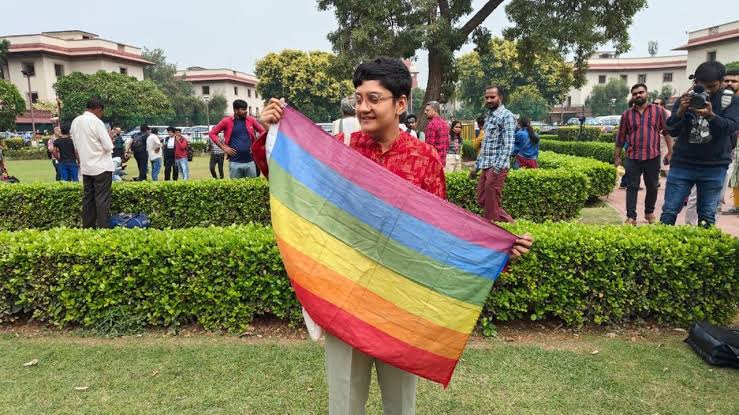
The Supreme Court of India, the country’s highest judicial body, has decided not to grant legal status to same-sex marriages.
The decision has been met with disappointment and criticism from LGBTQ rights activists, who have labeled the verdict as “backward”.
A Supreme Court lawyer, Pyoli Swatija, expressed her dissatisfaction with the court’s decision, stating, “The court has failed in its duty to uphold the constitutional rights of the people of India not to be discriminated against based on their sexuality.”
Earlier this year, the government under Prime Minister Narendra Modi argued against extending rights to same-sex couples.
They described these views as “urban and elitist”, asserting that gay marriage does not align with the traditional Indian family unit concept, which consists of a husband, wife, and children.
READ ALSO: Afghan Earthquake Leaves 14 Dead, 78 Injured
The recent ruling was in response to a petition that argued that the failure to recognize same-sex unions violated the constitutional rights of LGBTQ individuals.
Although the court recognized the rights of gay couples, it did not go as far as to allow equal marriage.
This means that while Indians are now free to engage in same-sex relationships with constitutional protection, same-sex marriage remains prohibited.
Chief Justice DY Chandrachud, who led the five-judge bench that passed the judgment, emphasized that choosing a partner is one of life’s most important decisions.
He stated that this right is fundamental to life and liberty under Article 21 of India’s constitution. Justice Ravindra Bhat echoed this sentiment, stating that this right includes choosing a partner and enjoying physical intimacy with them.
However, this ruling has dashed the hopes of millions of LGBTQ individuals in India who had hoped for full marriage rights.
The court refrained from defying the government and granting these rights. Chief Justice Chandrachud clarified that introducing laws on equal marriage rights is not within the court’s jurisdiction but is a matter for parliament.
He added that the court must avoid matters related to policy that fall within the legislative domain.








Leave a Reply